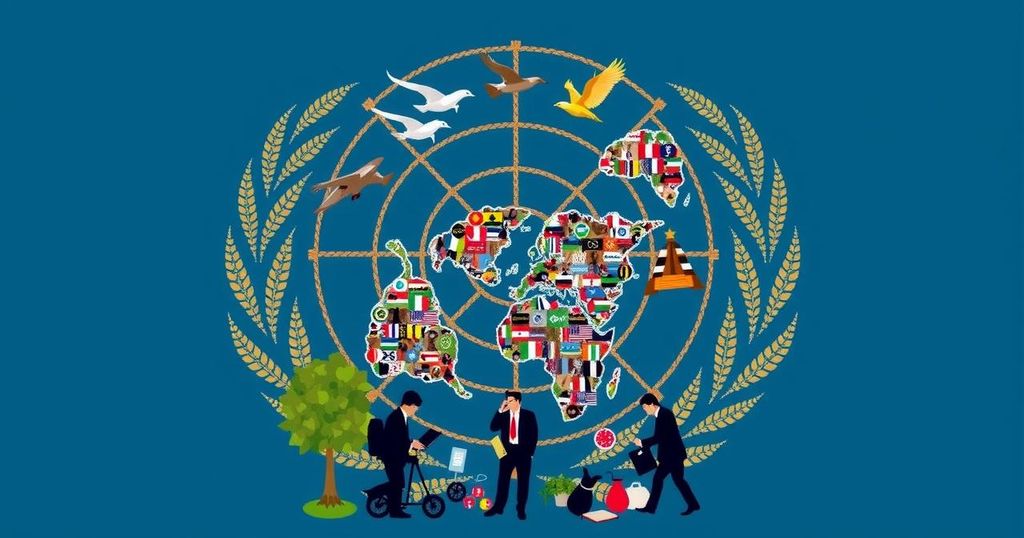Urgent Need for Climate Finance Dominates COP29 Negotiations in Azerbaijan
Negotiators at COP29 are under pressure to secure significant funding for vulnerable nations facing climate change impacts. Developing countries seek $1.3 trillion to adapt, while wealthy nations have offered considerably less. The discussions focus on financial amounts, proportions of loans versus grants, and responsibilities of donor nations, amid calls for more ambitious climate action.
As the United Nations climate talks in Baku, Azerbaijan commence, negotiators are under increasing pressure to reach an agreement to secure substantial financial support for vulnerable nations affected by climate change. With the summit, known as COP29, approaching its conclusion, the talks have highlighted the significant funding gap that exists between developing and developed nations. Vulnerable nations are seeking $1.3 trillion to adapt to climate impacts and develop clean energy systems, far exceeding previous offers from wealthier countries. The urgency is palpable, with COP29 President Mukhtar Babayev imploring negotiators to focus on critical discussions after addressing the technical aspects of funding. United Nations Secretary-General emphasized the importance of developed nations meeting funding commitments. Additionally, Brazil’s President Luiz Inácio Lula da Silva urged the G20 nations to accelerate their emission targets in a bid to seize more ambitious climate action. Negotiations have centered around three core issues: the amount of financial aid, the ratio of grants to loans, and the responsibilities of donor nations. Yalchin Rafiyev, lead negotiator for COP29, underscored the interdependent nature of these discussions, noting that agreements on one issue might facilitate progress on the others. Various stakeholders have expressed their positions, with the European Union potentially committing between $200 billion to $300 billion annually. However, this figure has been criticized as being insufficient against the backdrop of developing nations’ needs. Activists argue that the proposal falls drastically short of what is necessary to address the impact of climate change on the Global South, which bears the brunt of the crisis despite contributing the least to its causes. Moreover, concerns regarding whether funding will largely consist of grants or loans persist, with many poorer nations arguing that they cannot afford to accumulate further debt. Irish Environment Minister Eamon Ryan reinforced the urgency of reaching a consensus, stating that it would be “unforgivable” for developed countries to withdraw from negotiations without confirming their commitments to developing nations. The ongoing talks are crucial, as they may shape the future of international climate finance and, consequently, the global response to climate change challenges.
The ongoing climate negotiations at COP29 in Baku highlight the urgent need for financing to support vulnerable countries in their adaptations to the impacts of climate change. These negotiations come amid growing concerns about the disparity between the funding that developed nations are willing to provide and the substantial financial needs of developing countries. The annual goal of $100 billion established back in 2009 remains unmet, prompting deeper scrutiny of international financial commitments amidst the worsening climate crisis. The current discussions represent a significant opportunity to recalibrate these financial expectations and commitments.
The COP29 negotiations encapsulate the urgent and critical need for escalated financial commitments from developed nations to support developing countries in combating climate change. With discrepancies in funding proposals causing significant tension, the outcome of these discussions holds the potential to redefine the global approach to climate finance. It is imperative that developed nations not only fulfill their commitments but also enhance their pledges to address the extensive climate-related needs of vulnerable populations.
Original Source: apnews.com




Post Comment